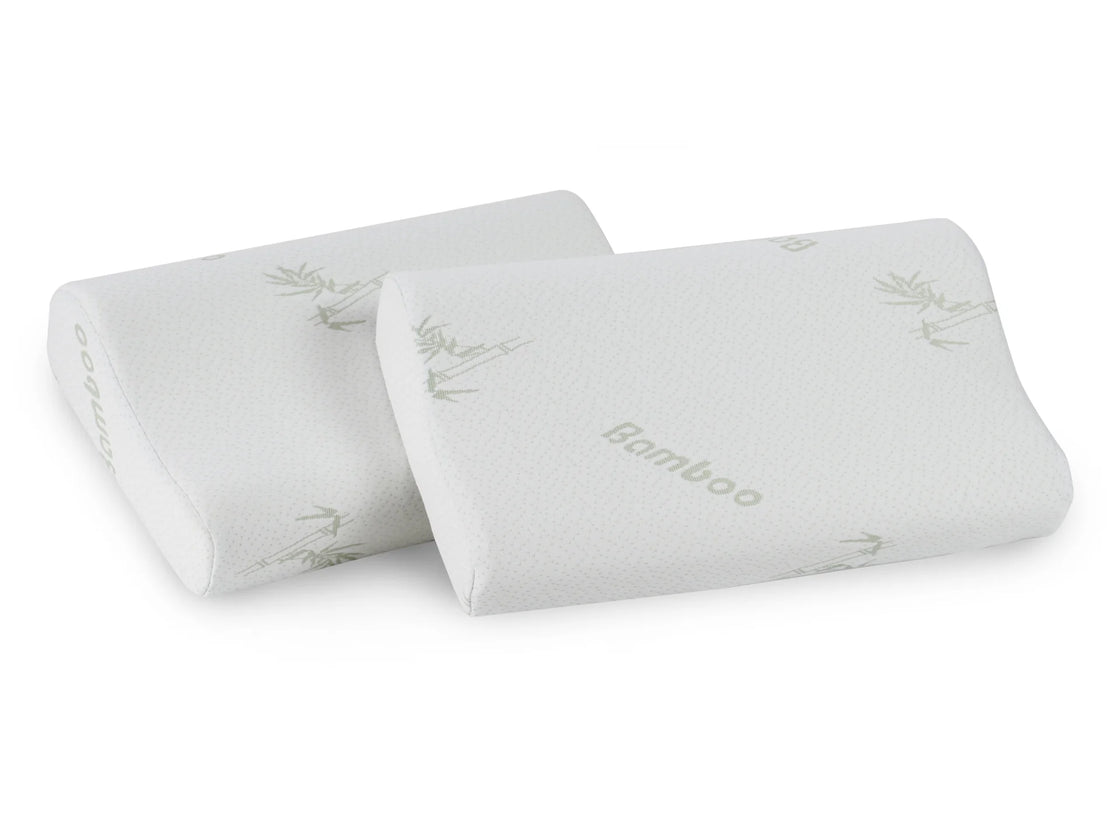Optimizing Sleep Quality: The Essential Role of the Right Pillow

Talk about a transformation! You've come a long way from those nights of tossing and turning on an uncomfortable pillow, waking up with a stiff neck (your mornings weren't too happy either). Now, you savor the joys of restful sleep, waking up feeling refreshed and ready to take on the day. Your journey to discovering the perfect pillow is a testament to your commitment to quality sleep.
Just as a fine wine complements a gourmet meal, the right pillow complements your sleep experience. Pillows aren't just accessories for your bed; they play a vital role in ensuring your sleep is as rejuvenating as possible. Whether you're seeking the ultimate support for your neck, trying to conquer snoring, or simply aiming to upgrade your sleep game, our comprehensive pillow guide will lead you to the pillow of your dreams.
Assess Your Sleeping Position
Understanding your sleeping position is the first step towards finding the ideal pillow. Each sleeping posture has unique needs for maintaining proper spinal alignment and ensuring comfort. For side sleepers, who form the majority, the pillow must fill the gap between the head and the mattress to maintain a straight spine. A high-loft, firm pillow is often ideal. Back sleepers require support for the natural curve of their cervical spine, making a medium-thick pillow with some extra loft at the lower end to cradle the neck beneficial. Stomach sleepers are at the highest risk of neck strain and should opt for a soft, flat pillow or even consider forgoing a pillow under the head altogether. A pillow under the stomach can also aid in preventing lower back pain.

Consider Pillow Materials for Comfort
The material of your pillow is crucial for comfort and can affect sleep quality. Memory foam pillows, popular for their contouring properties, adapt to the shape of your head and neck, providing consistent support throughout the night. However, they can retain heat. Gel-infused memory foam or ventilated designs are available to mitigate this. Feather pillows offer a soft, luxurious feel. They're less supportive but excellent for those who prefer a softer, more adaptable pillow. Down pillows, though similar to feather, are often softer and longer-lasting. Latex pillows, known for their firmness and support, are also hypoallergenic and resistant to dust mites and mold. For a more eco-friendly option, consider organic materials like bamboo, which are sustainable and naturally hypoallergenic.

Enhancing Sleep Posture with the Right Pillow
Achieving the perfect sleep posture is essential for a restful night. The role of a pillow here is more than just a comfort accessory; it's a tool for maintaining spinal health. An ergonomically designed pillow that fits your sleeping position can prevent common issues like neck strain, back pain, and even snoring. For example, side sleepers benefit from a pillow that maintains the head at a height in line with the spine, preventing the neck from bending unnaturally. Memory foam or high-resilience foam pillows can be excellent for this, as they mold to the contours of the head and neck. Contour pillows, with a recessed middle, are excellent for back sleepers, supporting the natural curvature of the cervical spine and distributing weight evenly. This attention to alignment is not just about comfort; it's about fostering a sleep environment that supports long-term musculoskeletal health.

Hypoallergenic Properties for Healthier Sleep
For many, allergies are a significant barrier to a good night's sleep. Hypoallergenic pillows, designed to reduce allergic reactions, can be a game-changer in such cases. These pillows typically feature a barrier that prevents dust mites, pet dander, and other common allergens from penetrating the surface, creating a cleaner and healthier sleep environment. Materials like bamboo, organic cotton, or specially treated synthetics are commonly used. For those particularly sensitive, pillows with a removable and washable cover offer an additional layer of protection, as they can be regularly cleaned to remove allergens. In addition to material choices, hypoallergenic pillows often come with certifications like CertiPUR-US or OEKO-TEX Standard 100, ensuring they are free from harmful chemicals and safe for sensitive skin.

Smart Pillows: The Future of Sleep Technology
The integration of technology into bedding has led to the advent of smart pillows. These pillows offer features such as sleep tracking, which monitors sleep phases and snoring, temperature control for a comfortable sleep environment, and even snore reduction technology. Some models can gently vibrate to encourage a change in sleeping position when snoring is detected. Others can interact with smart home systems to adjust room conditions for optimal sleep. While these features might seem extravagant, they can be particularly beneficial for those struggling with sleep disorders, chronic snoring, or those simply aiming to optimize their sleep quality.

Regular Replacement for Optimal Comfort
The importance of regularly replacing pillows for maintaining sleep quality cannot be overstated. Over time, pillows can become a breeding ground for dust mites, fungus, and bacteria, which can exacerbate allergies and impact respiratory health. Additionally, the structural integrity of a pillow diminishes with use, leading to decreased support and comfort. The signs that it's time to replace a pillow include noticeable flattening, lumps, persistent odors, and increased sneezing or discomfort upon waking. Regular replacement, ideally every 1-2 years, ensures that the pillow provides the necessary support and remains hygienic. For those concerned about environmental impact, there are eco-friendly disposal options, and some materials, like natural latex, are biodegradable.

The journey to improving sleep quality is multifaceted, with the choice of pillow playing a pivotal role. By understanding and catering to your specific needs—be it the right material, the correct support for your sleeping position, hypoallergenic properties, or the latest technology in sleep comfort—you can transform your sleep experience. Just like carefully selecting furniture for a small space can maximize its functionality and style, choosing the right pillow can lead to a profound improvement in sleep quality, enhancing your overall health and well-being.




